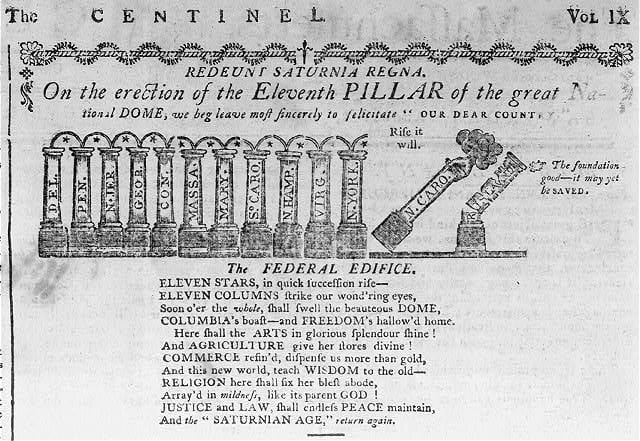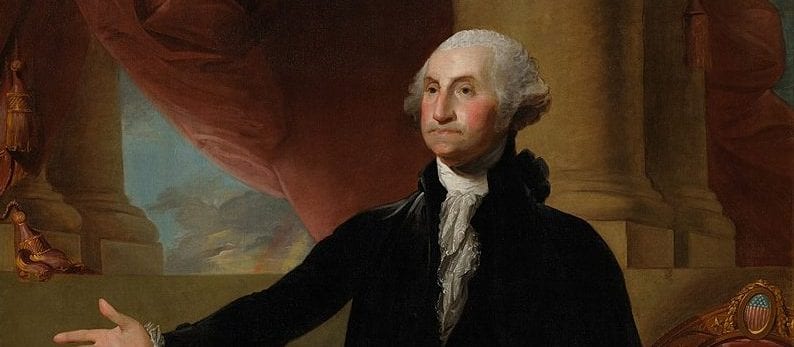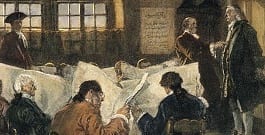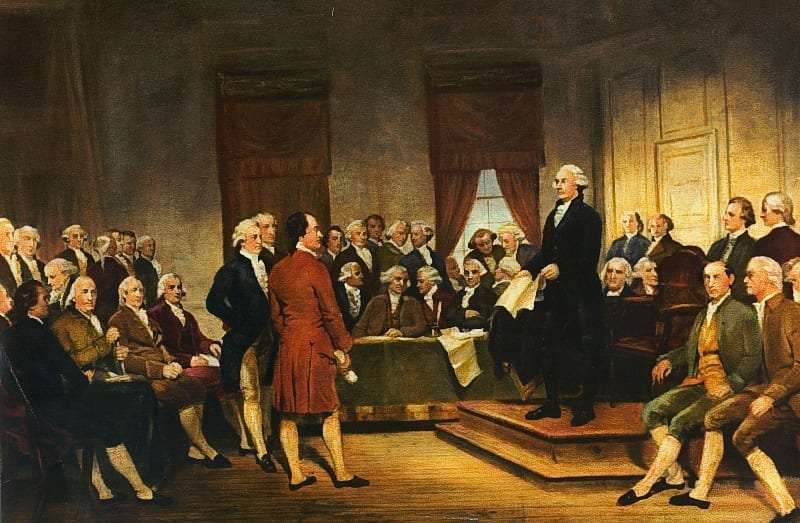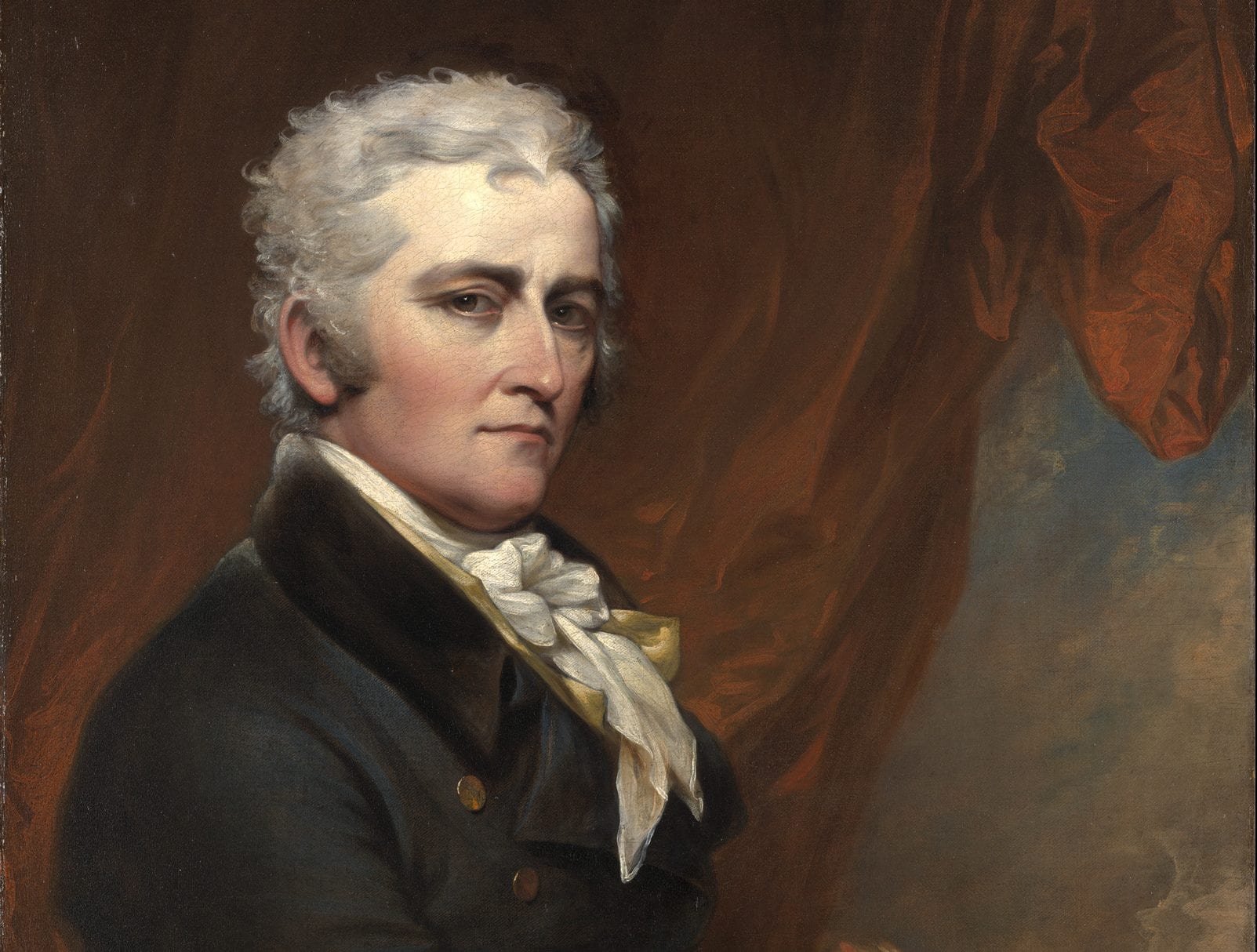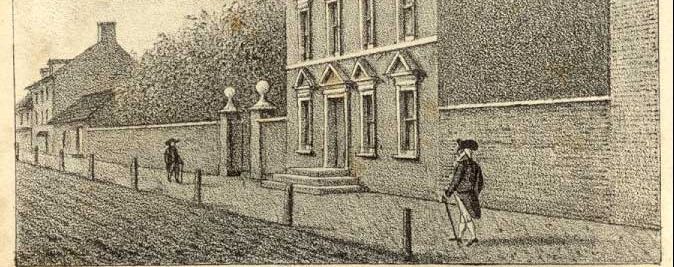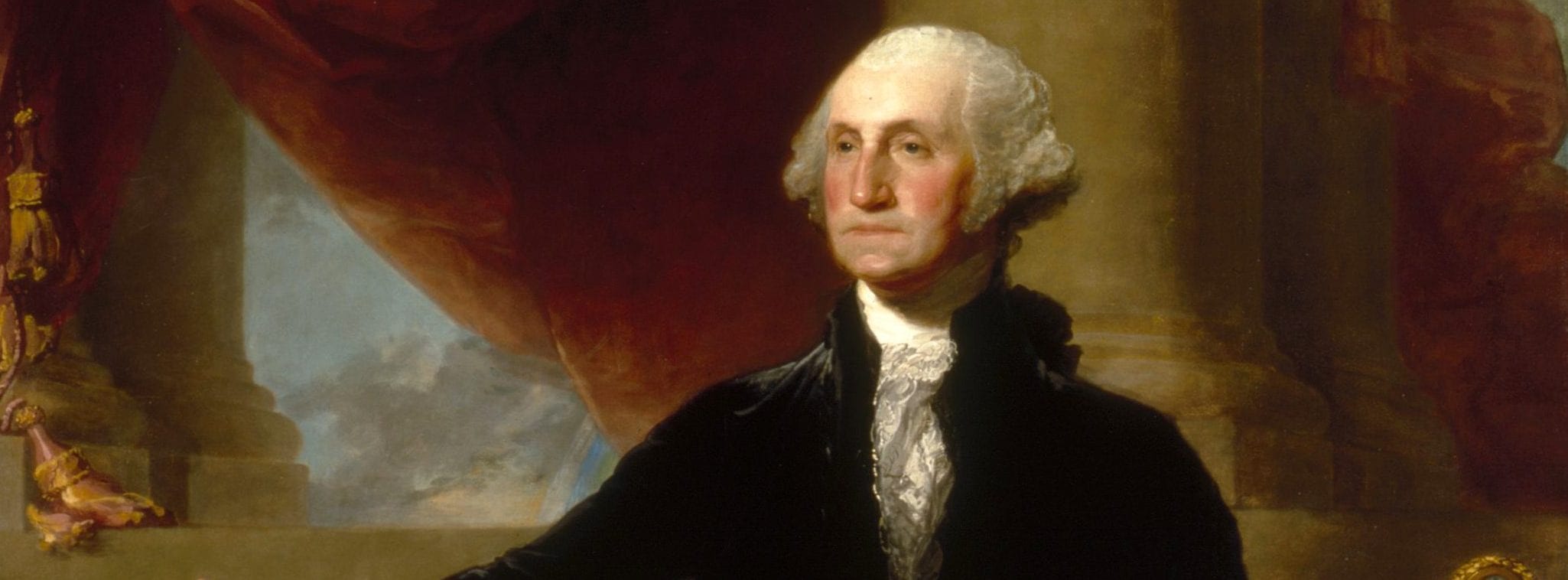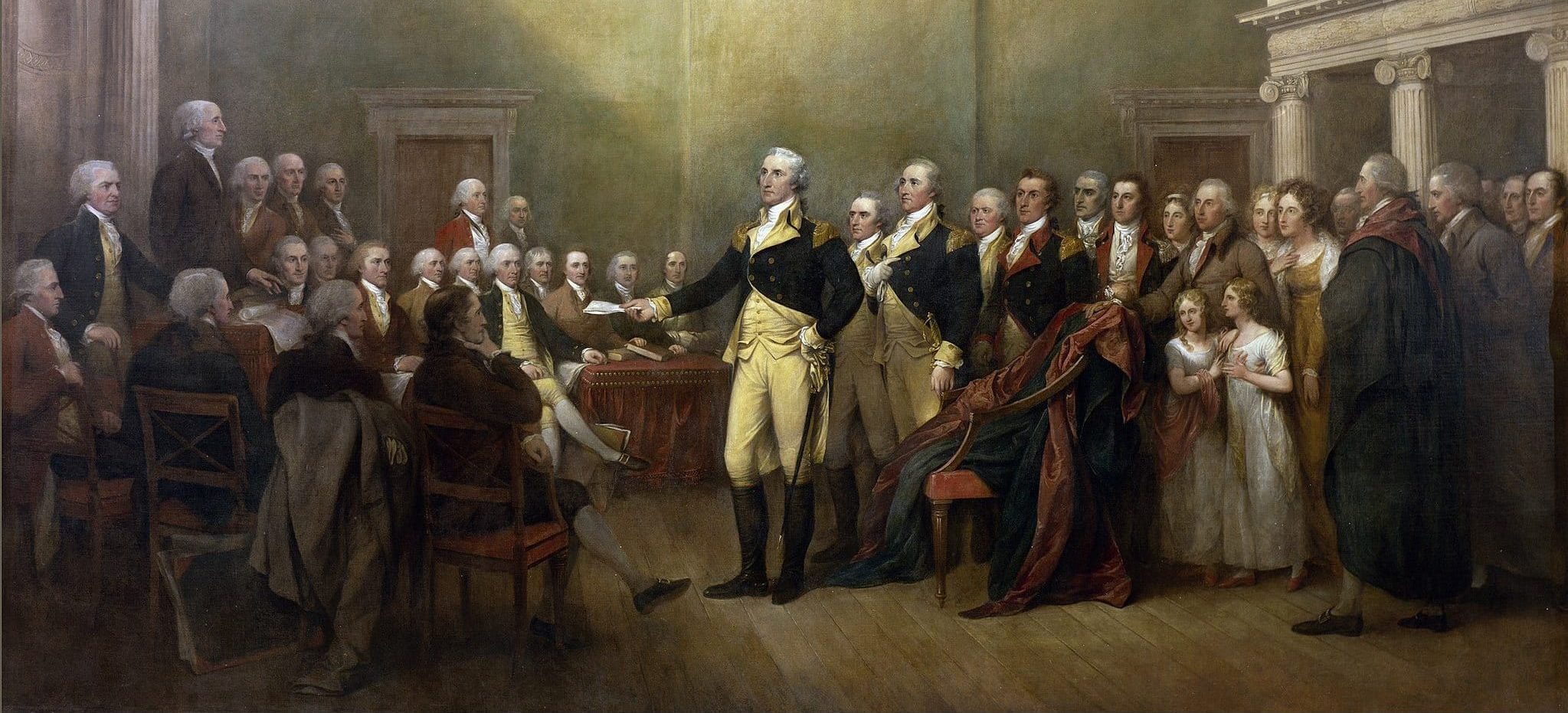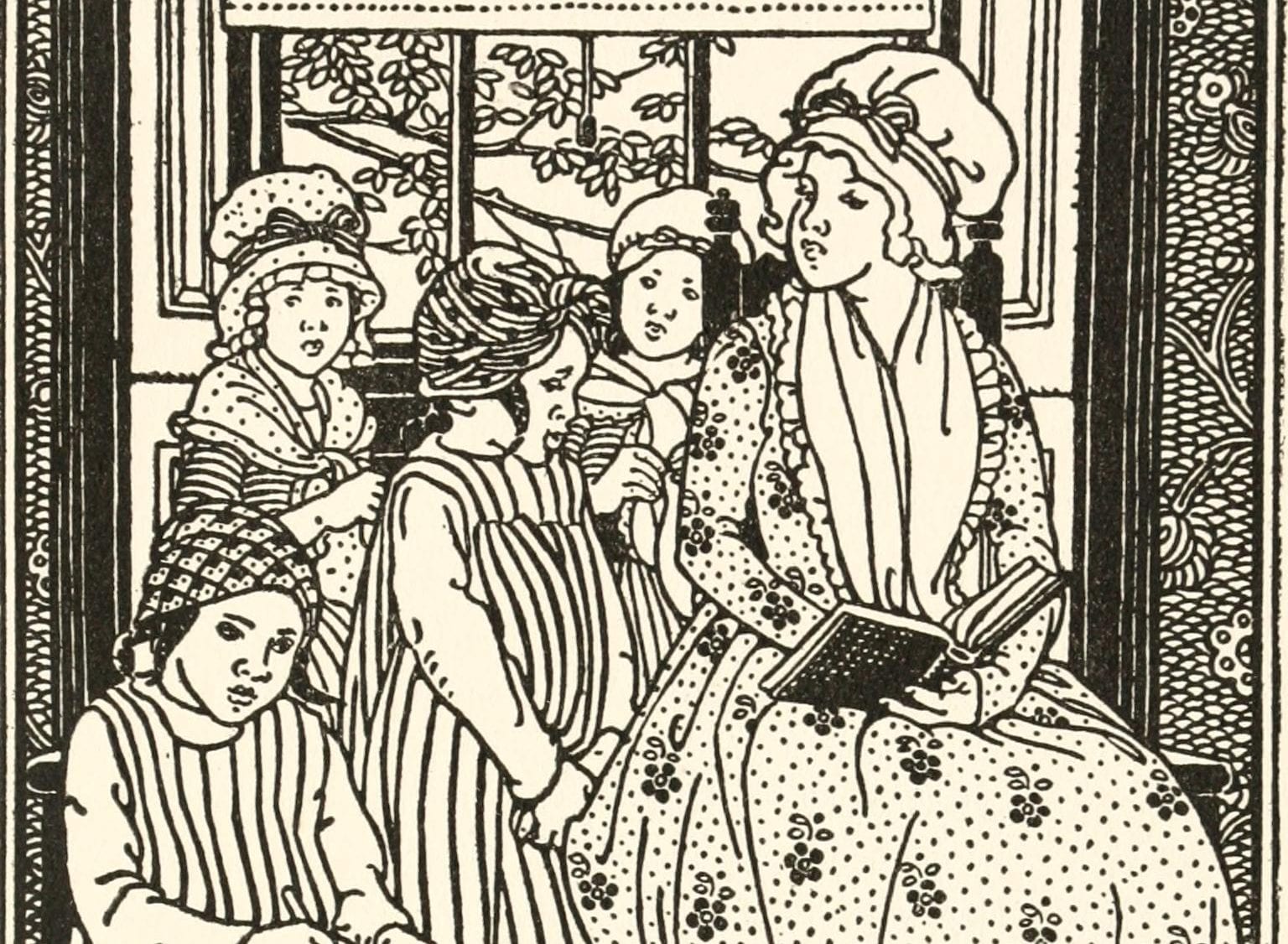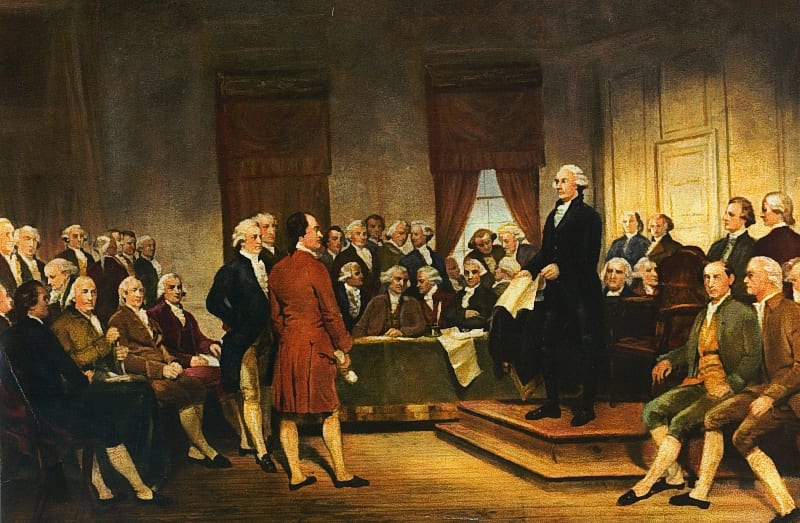
By the 9th article of confederation “the United States in Congress assembled, have the sole and exclusive right and power of regulating the alloy and value of coin struck by their own authority, or by that of the respective states.” Consequently no state can have a right to enact tender-laws, emit any sort of paper currency, or adopt any plan of finance that may affect the union, without the consent of a federal head. Neither ought it to have any such right to the prejudice of its own people, or foreigners; because the states are guarantees to each other, and must, without any special treaty, guarantee to every foreign nation the jus gentium, mutual rights of nations, regarded as sacred in every civilized country, nay among savages. The United States are known as a nation only in their federal quality. If a nation is injured by any state it looks up to the union for satisfaction, and if refused, has a right to procure it by force. If a Spanish merchant f[or] e[xample] is defrauded by a trader of Rhode-Island, it is a private affair; but if he is injured by a tender law that pays him a dollar with a shilling, his government may demand satisfaction from Congress, and if refused, seize the property of a Philadelphian. What disgrace and danger may not then arise from such a weakness of federal power, that cannot restrain a wicked state government from robbing its own people, and the world at large! What antifederal impression must it not make on every mind! Money is a universal object, in which every person is concerned, some daily and hourly: it is a general standard by which all commodities are measured; to be harassed, wronged, and trifled with, by a medium depending on every body’s caprice, must create hatred and contempt of the sovereign power. But a coin of permanent universal value, struck by federal authority, would impress all the citizens of the United States with a constant sense of this power, and of its salutary protection. Federal emblems and mottos on the different species of coin, would also have a good effect. As these must significantly express the most interesting federal sentiments in few words, they are objects for a fine genius.
As there can be no liberty without virtue, there can be none without a very general share of learning. An overdriven spirit of wealth has, both in Great Britain and America, nearly established the false maxim, that national liberty is safest in the hands of the rich, because they have a greater share in the public interest. This can be admitted so far only as wealth is attended with superior virtue and wisdom. Avarice and luxury is as little satisfied with 10,000 l. a year, as 100 l. and a person may have his pockets full of money with empty brains. The public education throughout the states, is a great federal concern, as without it no state can be well governed, not act its part in the confederation with dignity, honor and a federal spirit.
There is of late an honorable exertion for the interest of learning very general; but, as may naturally be expected, in many cases ill directed. A smattering of Greek is nothing in comparison to the essential parts of learning which we continually want in public and private life. The great science of politics is the capital learning of republics, and three years at least should be dedicated to it in every state college, by those that expect to be legislators. What can we expect from men who know nothing but the little affairs of their own townships, who not only have no reading, but want the knowledge and reflection acquired by traveling through different parts of the country, and conversation with men of science and political experience? Their affections are too often equally narrow with their ideas—The union is an object by far too grand for them. It is a most important consideration, that ignorance creates suspicion—it is a law of nature for our good. A man of common sense, who knows nothing about fine horses, will not give 200 l. for one, without solicitous consultation with men on whose knowledge and integrity he can depend—For the same reason an ignorant assemblyman will refuse the most necessary grant of federal requisition; because he don’t understand the fatal consequence of a refusal to the union, his own state, and finally to himself; but he knows that his neighbours must pay a share of it, and feels that some must come out of his own pocket. What is remarkable, this suspicion not seldom influences electors; they are afraid of choosing men who know too much. Hence an infatuated multitude place their confidence either in those who are too stupid to do either good or harm; or in quacks who promise to cure every political disorder with a six pence nostrum.
When the public education shall distinguish many by political abilities and a polite taste; and enable great numbers to esteem these qualities; the most eminent characters will be chosen for the legislature, civil administration, and military command—consequently the government will not only in reality be so much better, but acquire that love and respect from the people, so necessary for its efficacy. What can you expect when a legislator or a magistrate can, over his bowl of grog, talk of nothing but hogs, potatoes, and the necessity of lessening the taxes! What may you not expect when such men are enlightened patriots, gentlemen in ideas, sentiments, and behaviour; who at the same time as they mix in chearful society with their fellow citizens, by instruction and example, make them wiser and better, more patriotic and federal.
A gentleman under the signature of Nestor, some months ago, gave the public a hint for erecting a Federal University. How much this will promote learning in general, is evident from the situation of this young country, whose pecuniary and literary resources cannot yet be great enough for more than one illustrious assembly of the muses. It would be an excellent institution for promoting federal sentiments. In the happy spring of youth all our best affections bloom—the high sense of honor, the warmth of friendship, the glow of patriotic virtue then animate the enraptured soul—Sublime and elegant literature has then its highest relish, refined and exalts these noble passions. What glorious effects may not then a nation expect from a concourse of her best sons at the temple of wisdom! Society in the sweet enjoyment of literature, and the many social pleasures of an academic life, will create a mutual endearment, and form those charming friendships, that will continue to the grave. When after a finished education they depart to their different stations, and places of residence, they will be so many capital links of the federal union, so many stately columns under the grand fabric, so many bright luminaries to shed a radiance through the whole federal system, and so many powerful centripetal forces to give it eternal stability. Infinitely above the local prejudices of vulgar bosoms, they will think and feel as genuine sons of America. I scruple not to say, that though a State College is formed on the most liberal plan, its education cannot be so patriotic as that in a Federal University. Let us propose these questions to the respective students. Where did you spend the happiest part of your life? In, f[or] e[xample] Pennsylvania. Where did you acquire those sciences and liberal arts which you value more than Peruvian treasures? In Pennsylvania. Where did you know the best politicians, philosophers and poets? In Pennsylvania. Where are your most faithful and admired friends? In Pennsylvania. When the dearest objects of the human heart are thus confined within a narrow sphere, it must be uncommonly noble to embrace unknown persons and objects however near politically related. But all these questions are answered by the federal student—in America. His learning, his virtues, his graces, all the blessings of education were acquired in the center of the confederacy. The friends of his youth, for whom he would die, are Americans, some in Georgia, others in New-Hampshire, or in Kentucky—Military officers, clergymen, magistrates, members of legislatures, delegates in congress.
Objections to the Constitution
September 13, 1787
Conversation-based seminars for collegial PD, one-day and multi-day seminars, graduate credit seminars (MA degree), online and in-person.




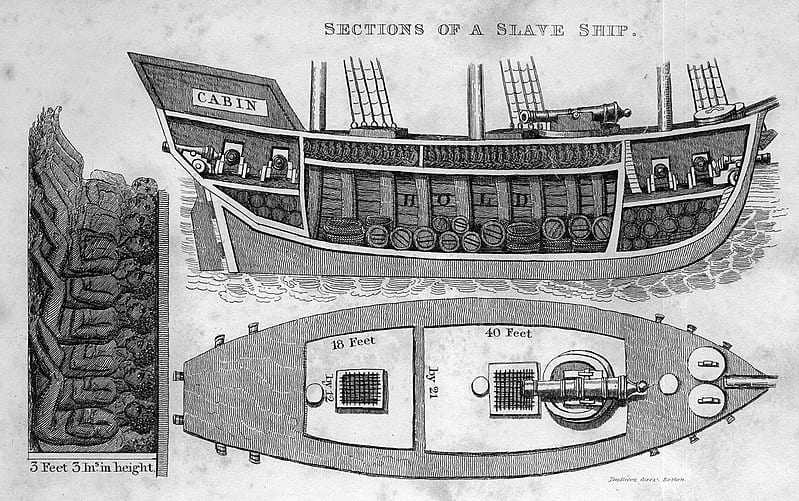






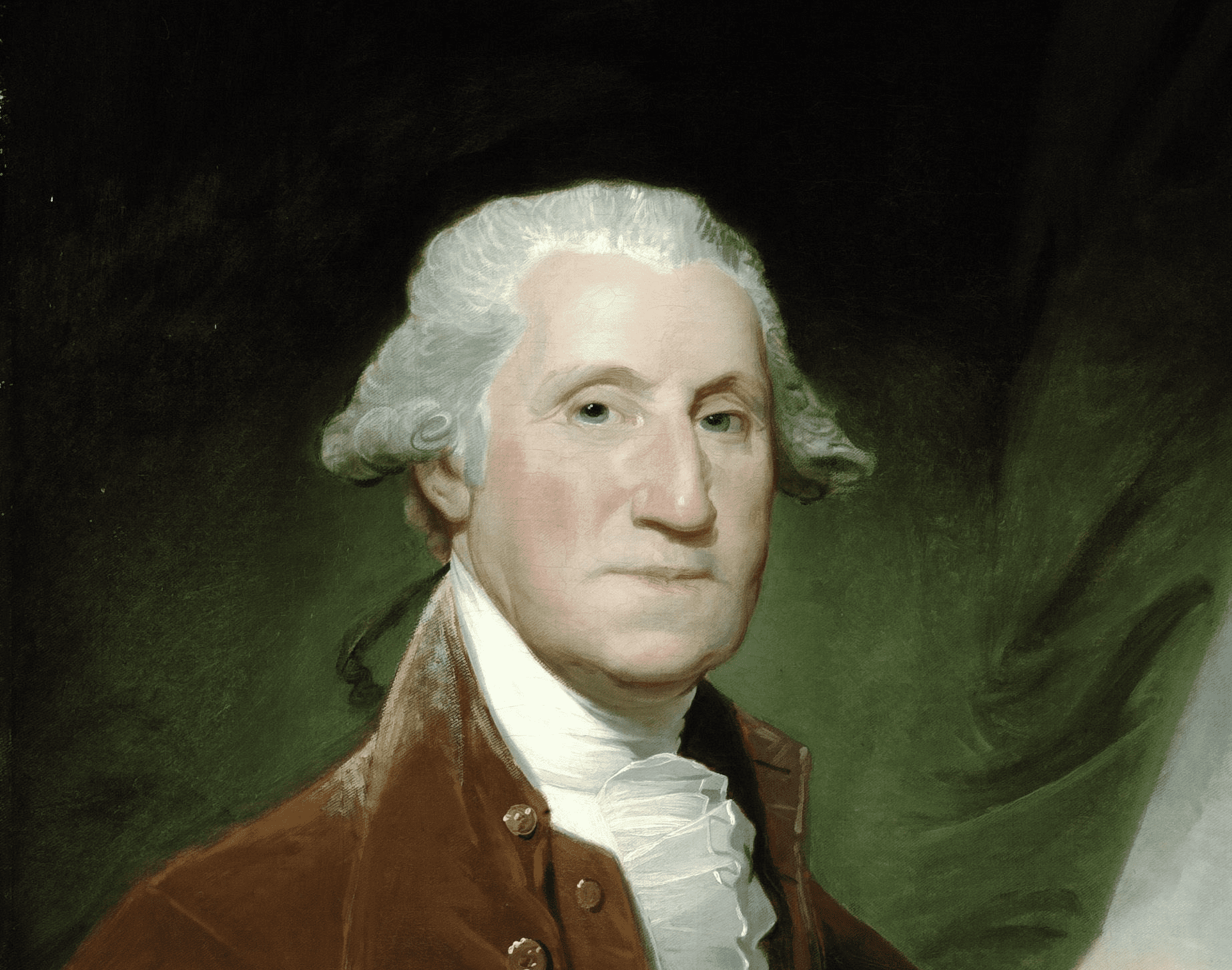















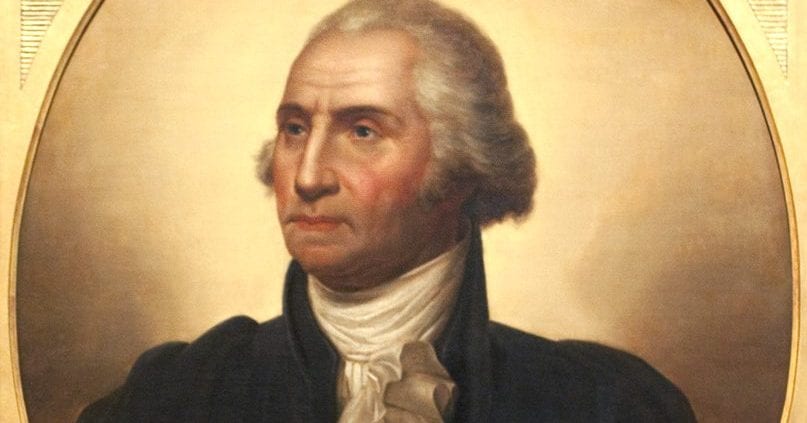
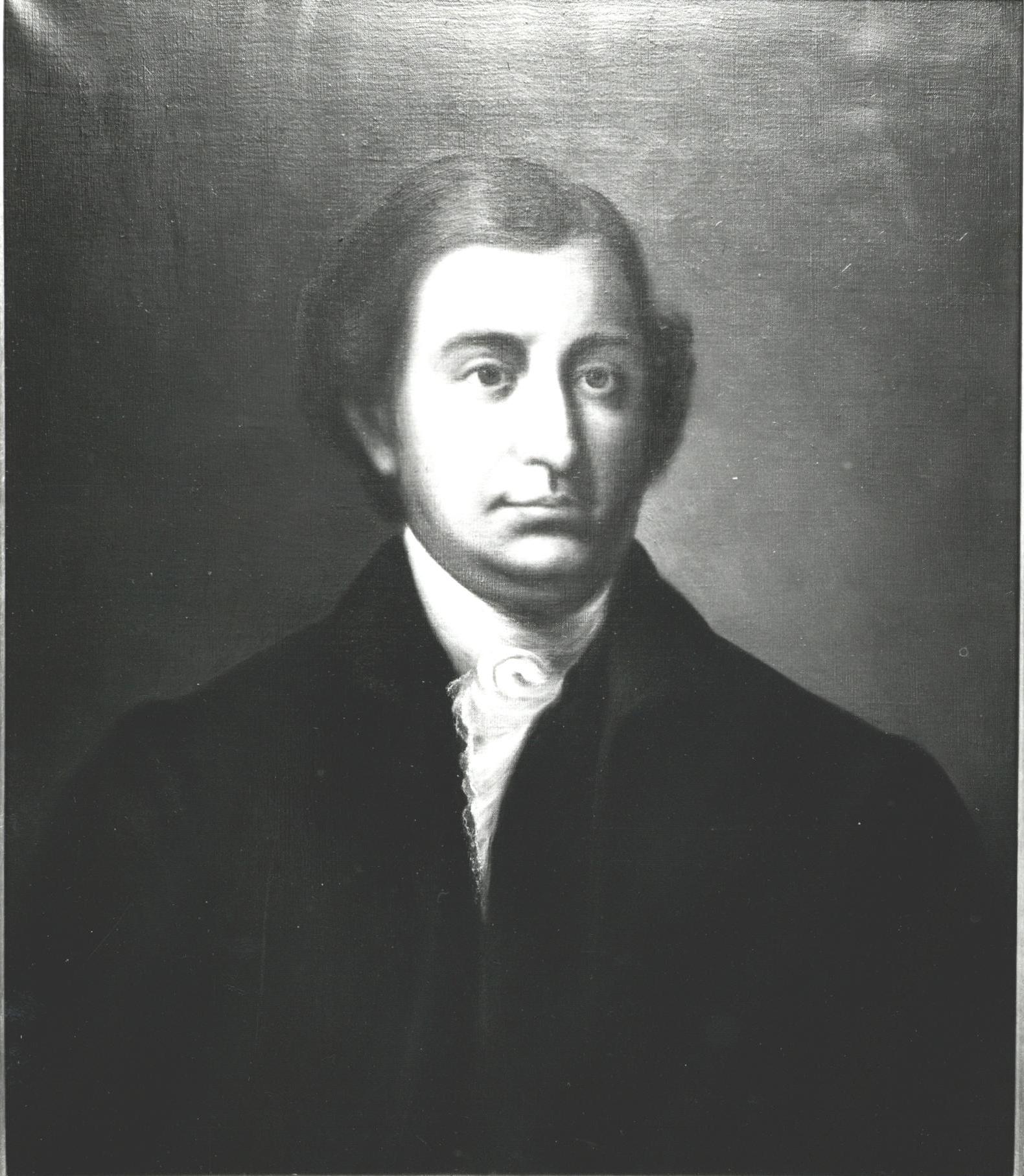
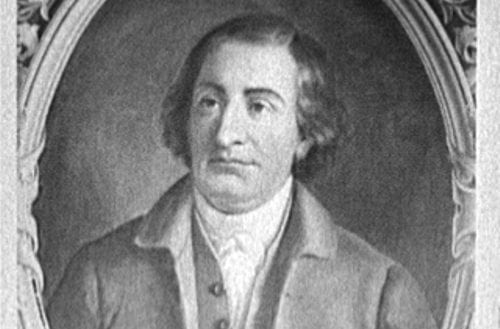
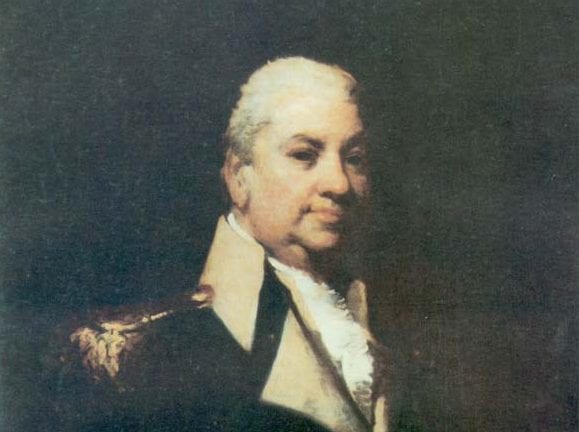




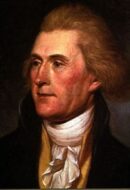













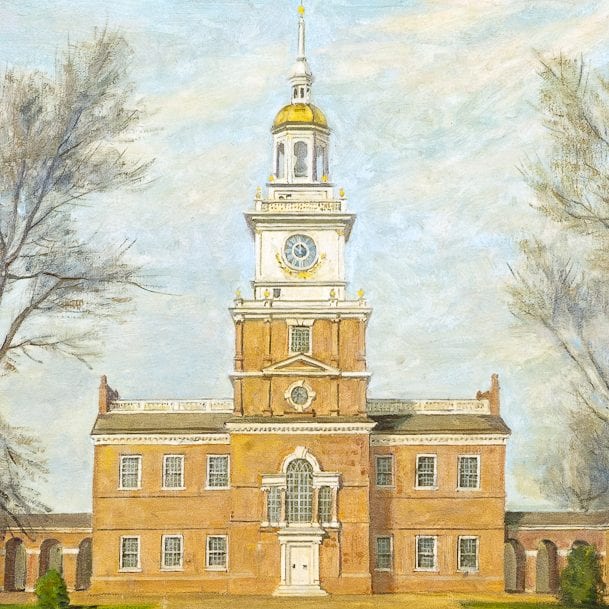

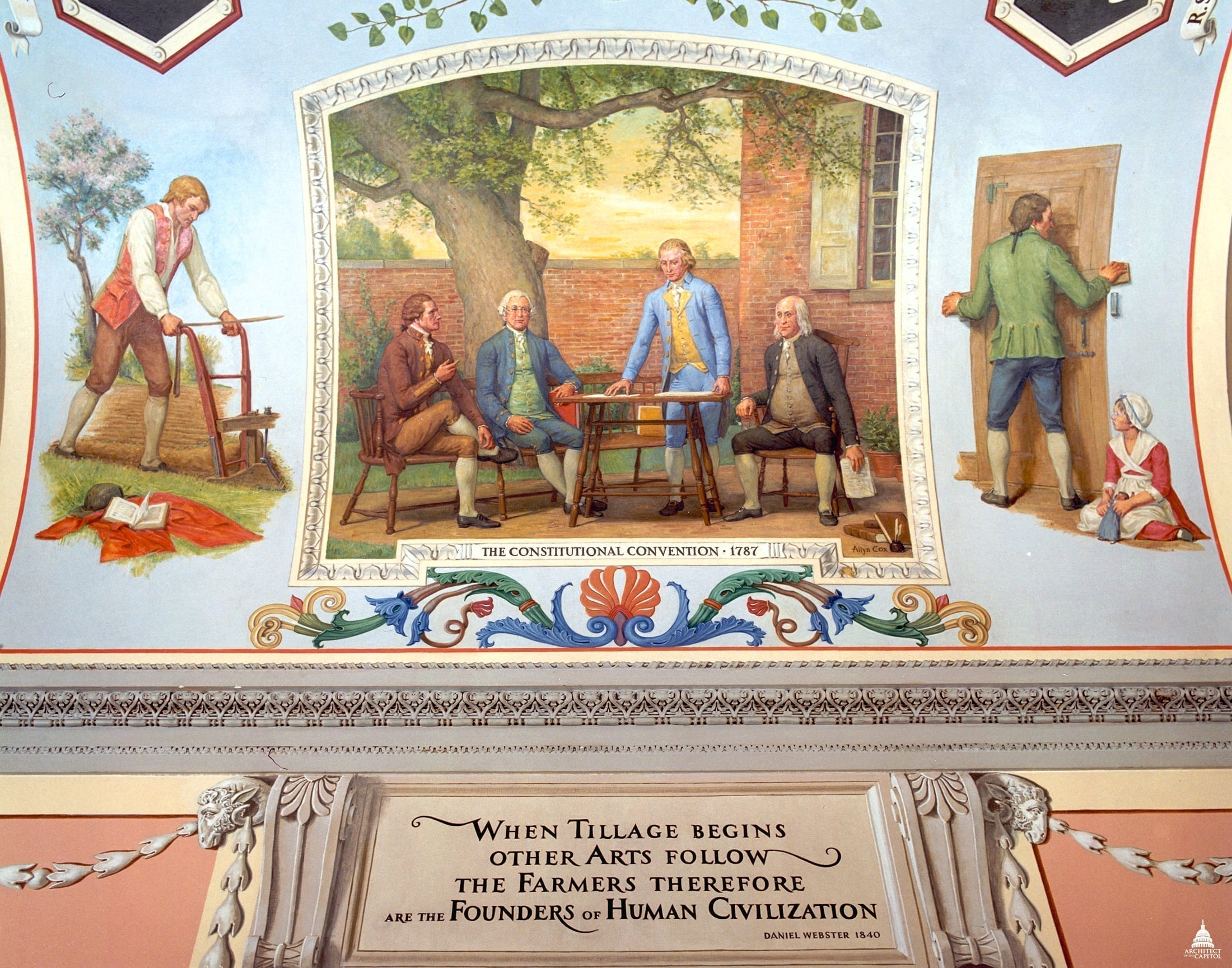

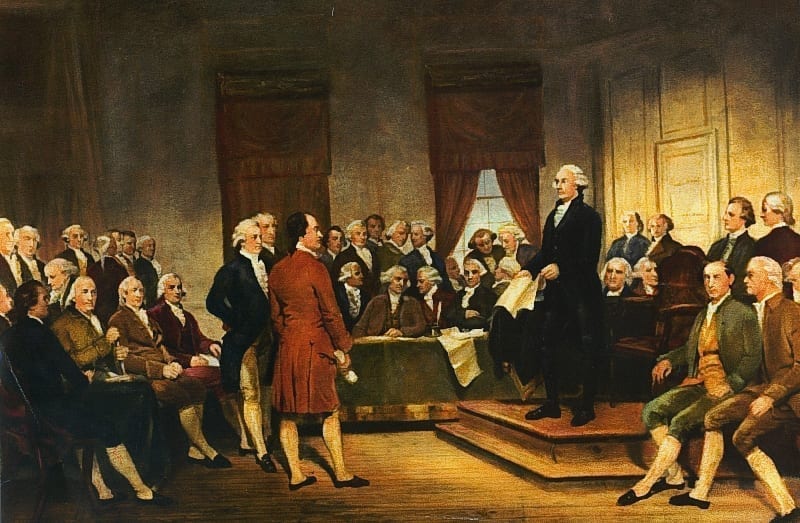


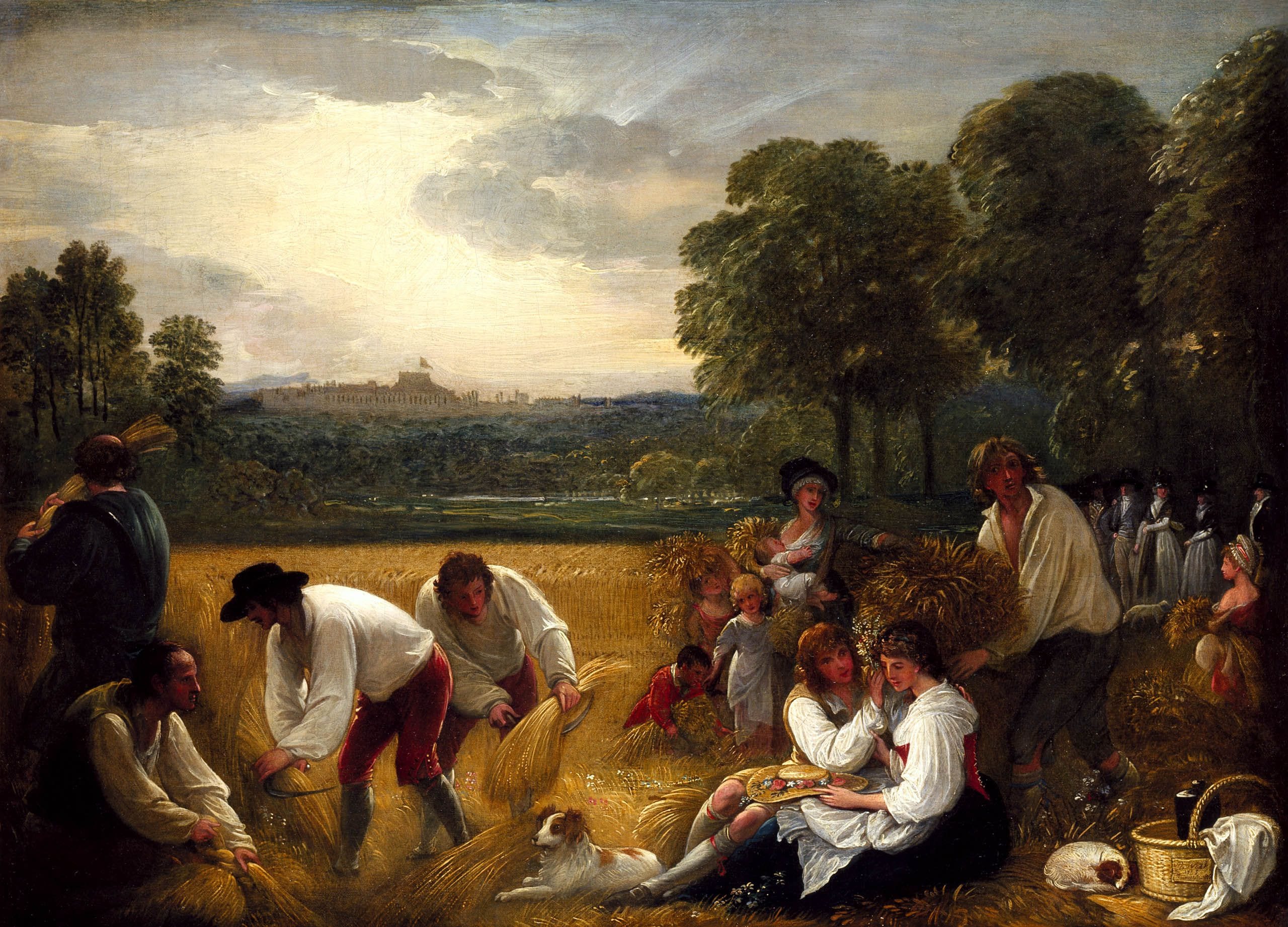


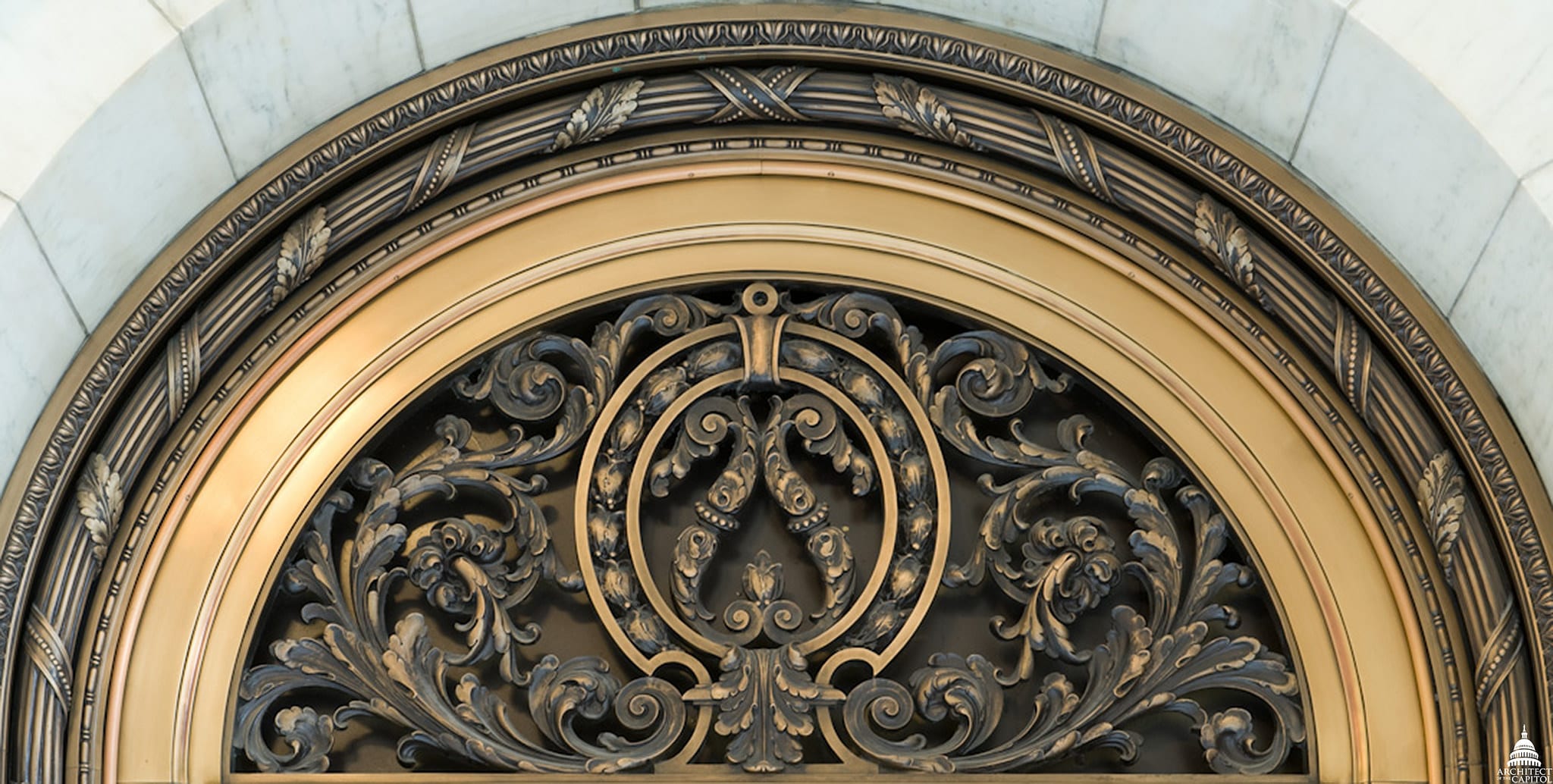













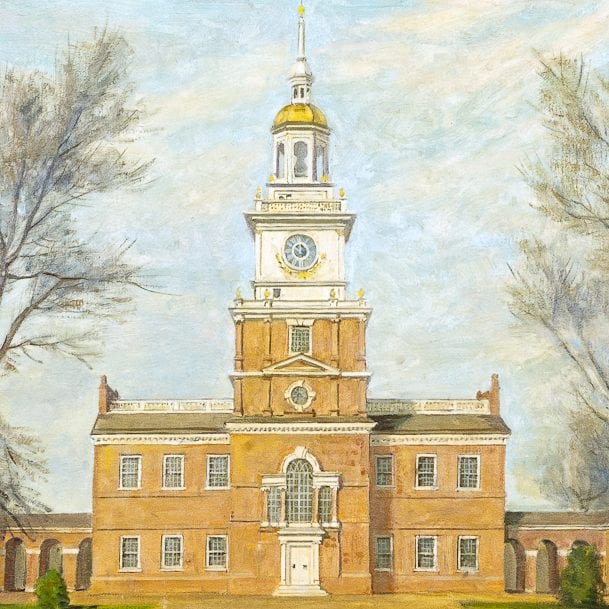
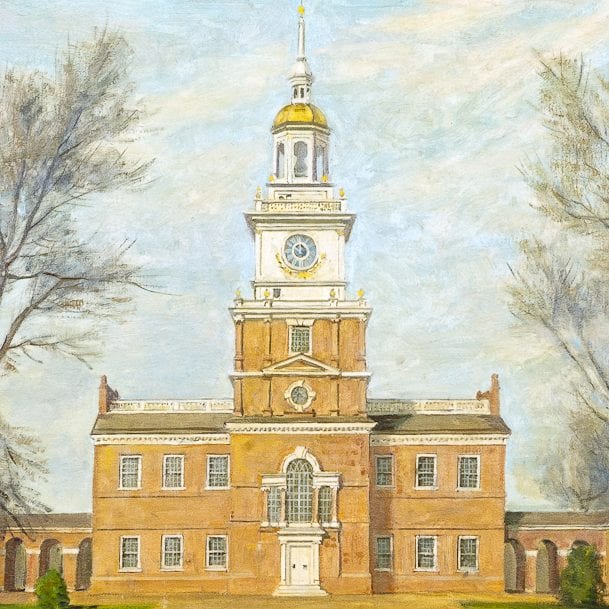






































































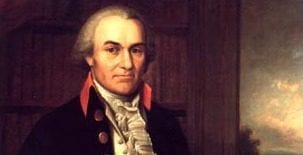



























![Finley, A. (1829) Pennsylvania. Philada. [Map] Retrieved from the Library of Congress, https://www.loc.gov/item/98688548/.](/content/uploads/2024/02/Map-of-PA--273x190.jpg)





















